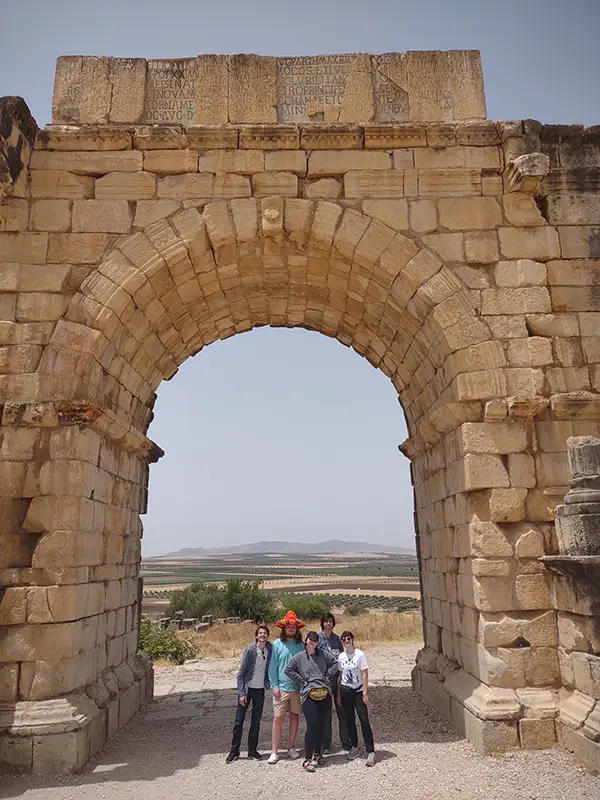Students Train in Moroccan Archeology Lab

This past July five classics majors from the University of Tennessee, Knoxville, traveled with Associate Professor Stephen Collins-Elliott to help with processing finds from the joint Moroccan-American archaeological project Gardens of the Hesperides: The Rural Archaeology of the Loukkos Valley. The project is co-directed by Aomar Akerraz of the Institut National des Sciences de l’Archéologie et du Patrimoine, Rabat and Collins-Elliott.
This summer students worked in the conservation lab at Lixus identifying, quantifying, and inventorying the finds of the past seasons of survey and excavation from the earliest city in northwestern Africa.
“We received valuable training in the identification and quantification of ancient biological remains and artifacts, and the processing of those remains,” said Landon Bryan.
Natalie Newsome explained, “We learned how to quantify artifacts, distinguish the differences between pottery sherds, find the attitude of a rim sherd, the diameter of the vessel from the rim sherd, the percentage missing of the pottery, and how to create highly detailed artifact illustrations.”
Isaac Buck said the trip was an amazing experience. “From the historical sites so closely tied to the myths that I love to study to the incredible opportunity to work in an archaeological lab with materials from thousands of years ago, I felt it was an incredible privilege.”
“For me,” Henry Greene said, “this visit represented a unique opportunity to interface with the history of the Mediterranean in the most unmediated manner I have yet had access to, whether this was the ancient or medieval history preserved in the untold numbers of potsherds we sorted through or the living history of the cities, peoples, and customs of the nation.”
Collins-Elliott led the group on field trips to nearby cities and sites, including Tangier, Tamuda, Tétouan, and Meknes. Volubilis was a favorite for several of the students.
“In Morocco, the presence of this history is palpable,” Greene said. “It hums in the very air, with the Moroccan ways of life, though no doubt much influenced by the modern world.” He noted that during the day the students saw a triclinium in the ruins of Volubilis. Later that day, they would sit at benches around a table in a manner not unlike the triclinium style.
Several of the students noted with appreciation the travel scholarships through the Department of Classics that made the unforgettable trip possible for them.